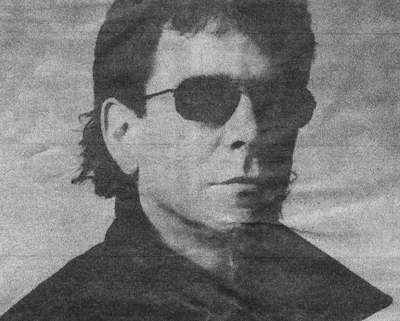1968: I hear the Velvet Underground's "Heroin" and "Venus in Furs" (from the previous year's V.U. debut, "The Velvet Underground & Nico") on KOL-FM, Seattle's first underground radio station. The songs are spooky and weird, and I like them.
1969: I run across a copy of that first album, the one with the peel-and-see banana, in a friend's record pile in Spokane. Putting it on, I squirm at the amateurish pop of "Sunday Morning" and "I'll Be Your Mirror," and I'm put off by the dimestore production values, which can't match those of my then-favorite band, the Doors. I decide the Velvet Underground are garbage.
1971: Friend Dusty insists that the Velvets are genius, and lends me all of their first four albums. Except for a few songs, the first one still doesn't grab me at the time. But the insane distorted energy of 1968's "White Light/White Heat" blows me away. The quiet songcraft of 1969's "The Velvet Underground" sucks me in. The poetic rock abandon of 1970's "Loaded" seals the deal. I'm now obsessed.
1972: The Velvets have broken up, and Rolling Stone runs a rave review of Lou Reed's first solo album. Although it sounds thin and the studio musicians don't rock, the songwriting (mostly tunes Reed had already written for the V.U.) is masterful, and Lou sings so sweet on "I Can't Stand It," "New Age," "Lisa Says," "Wild Child," "Ocean" -- I mean, jeez.
1972 (a few months later): Has David Bowie locked the real Lou Reed in a basement? I love Bowie and his production skills, but where did Reed's songwriting go? Aside from "Satellite of Love" (another one Reed wrote with the Velvets), the tunes on "Transformer" are crapola, self-mockeries or both. Naturally, because people are idiots, the record sells like cheap gas.
1973: I was so looking forward to "Berlin." I liked the previous version of the title song on Reed's first solo album, and early reports have skewed favorable. I listen to it five times with increasing disappointment, and today haven't pulled it out of its sleeve in 40 years. Reed sounds as if he's on life support, and aside from "Caroline Says" and the bare-bones "Oh Jim," the songs (despite producer Bob Ezrin's muscular efforts on the bicycle pump) lie there like bloated cow carcasses. Naturally, because critics are idiots, it's hailed as a decadent masterpiece.
1974: The live "Rock 'n' Roll Animal" presents Lou as just any old bonehead rock star; I'm indifferent, and it ships millions. Then I move to L.A., where I soak up "1969: The Velvet Underground Live" every day, and what the hell, I buy "Sally Can't Dance," an actual rock record that I end up playing a lot. When critics say Reed is trying to sell out, I scratch my head -- he's writing real songs again, bozos! Reed's tour hits the Sado-Masochistic Civic Auditorium, and I laugh as he rolls onstage with blond hair, riding a skateboard and pretending to tie off for the hypodermic.
1975: Reed's newfound flair for comedy drives him to release the double noise extravaganza "Metal Machine Music," which I have used over the years to clear overlong parties and to drown out the mariachi music blaring from the apartment building next door. Later the same year, "Coney Island Baby" has a nice atmosphere and a good cover picture, and that's about it.
1977: When I form a band, we cover the Velvets' "Waiting for the Man," "Sweet Jane" and "Beginning to See the Light."
1978-2013: Having discovered that absurdity and image sell better than art, Reed gets lazy and ever more cynical. Friend Gilbert likes "Street Hassle" (1978); I think it's just more self-parody freighted with hype about "binaural sound." Friend Jay gives me "The Blue Mask" (1982), and I give it back. Reviewing "New York" in 1989, I suggest that Lou Reed has been replaced by a clone. Reed makes half-baked concept records inspired by Edgar Allan Poe (2003) and by German proto-expressionistic theater (2012), scoring a publicity/monetary coup by teaming with Metallica. It becomes increasingly obvious why, having lost his voice and his tunesmith chops, he has embraced conceptualism and married a performance artist.
The one moment when Reed seems to have tapped back into his muse arrives in 1990, when he re-teams with original Velvet Underground bandmate and boyhood schoolmate John Cale for "Songs for Drella," a tribute to his early mentor and career-launcher, Andy Warhol. I interview him at that time, and it's a strange experience. Read my L.A. Weekly story here.
Thank you, Lou Reed, for "Candy Says," "I Heard Her Call My Name," "Rock and Roll," "Going Down," "Foggy Notion" and a couple dozen of my other favorite songs of all time. Thank you very, very much.
CRUMPLED 1990 PHOTO BY HOWARD ROSENBERG.

